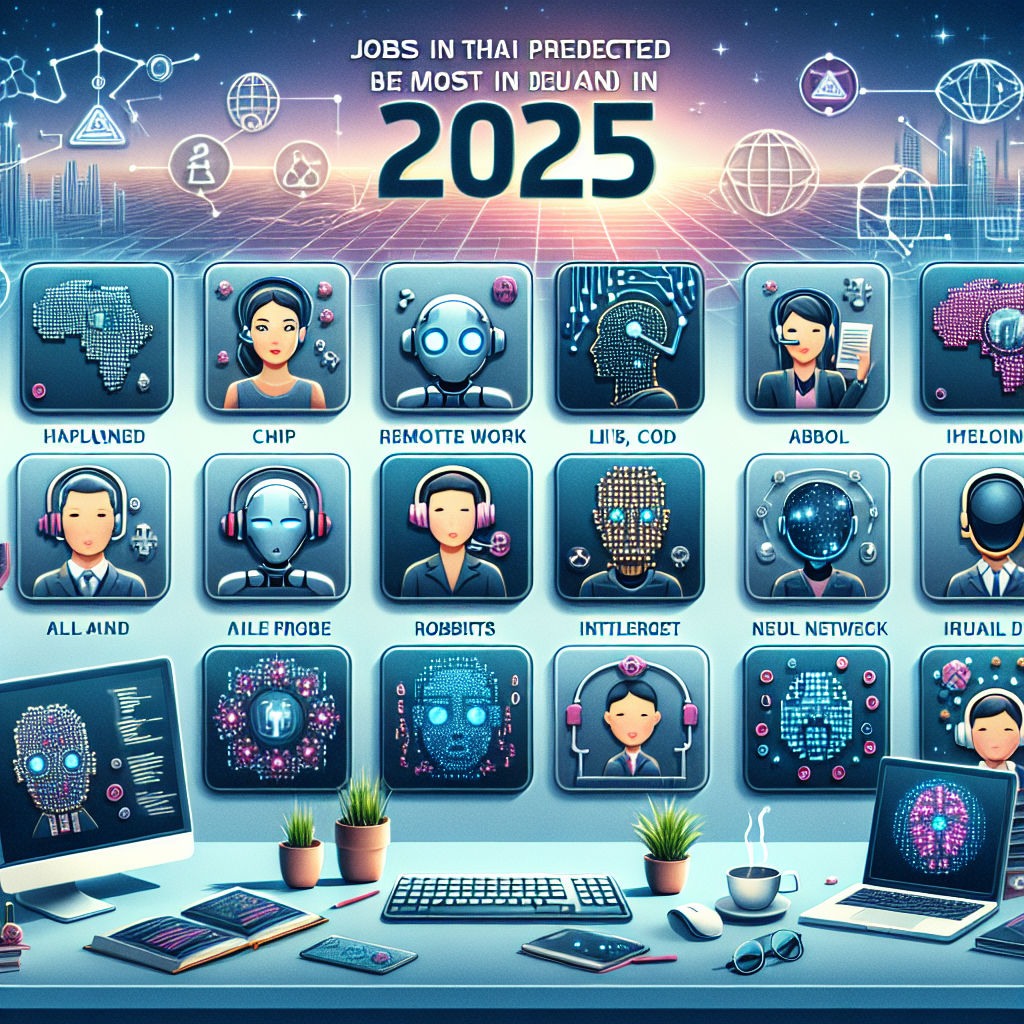The future of work is remote, and the AI industry is leading the charge. By 2025, many workers will have ditched the commute and office life for a more flexible, home-based work environment. In this article, we explore the top 10 remote jobs in the AI industry for 2025 that are set to define this new era of work.
The Rise of Remote Work in the AI Industry
The AI industry is booming, and with this growth comes a considerable shift in how and where work is conducted. Companies are increasingly embracing remote work models, providing their employees with the flexibility to work from anywhere. This trend is primarily driven by advancements in technology, the demand for a better work-life balance, and the need for businesses to access a global talent pool.
Top 10 Remote Jobs in the AI Industry for 2025
Now, let’s dive into the top 10 remote jobs in the AI industry for 2025. These roles are anticipated to be in high demand, offering lucrative salaries and the opportunity to work on cutting-edge technology.
1. AI Architect
An AI Architect is responsible for designing, developing, and overseeing the implementation of an organization’s AI strategy. This role requires a deep understanding of AI, machine learning, and data science.
Pros:
- High demand
- Lucrative salary
- Opportunity to shape AI strategy
Cons:
- Requires extensive knowledge and experience
- Highly complex role
2. Machine Learning Engineer
Machine Learning Engineers are tasked with building and implementing machine learning models to solve business problems. They must be skilled in programming languages such as Python or R and have a strong understanding of data science.
Pros:
- High demand
- Opportunity to work on innovative projects
Cons:
- Requires advanced technical skills
3. Data Scientist
Data Scientists analyze and interpret complex digital data to help companies make decisions. They’re experts in statistical analysis, data visualization, and predictive modeling.
Pros:
- High demand
- High earning potential
Cons:
- Requires advanced statistical and analytical skills
4. AI Ethicist
AI Ethicists ensure that AI technologies are developed and used ethically. They consider the societal impacts of AI and help to develop guidelines and principles around its use.
Pros:
- Growing demand as AI use expands
- Opportunity to make a positive impact
Cons:
- Multidisciplinary expertise required
- Emotionally demanding
5. AI Product Manager
AI Product Managers oversee the development and marketing of AI products. They work with cross-functional teams to ensure that products meet market needs and are commercially viable.
Pros:
- High demand
- Opportunity to work with diverse teams
Cons:
- Requires broad knowledge of AI and business
- Highly stressful role
6. AI Analyst
AI Analysts assess the effectiveness of AI technologies and make recommendations for improvement. They require strong analytical skills and a solid understanding of AI and machine learning.
Pros:
- High demand
- Opportunity to improve AI efficiency
Cons:
- Requires advanced technical and analytical skills
7. AI Trainer
AI Trainers “teach” AI systems how to perform tasks by training them on data sets. They need to understand how AI and machine learning work and be able to identify and correct errors in AI performance.
Pros:
- Growing demand as more companies adopt AI
- Requires less technical expertise than other roles
Cons:
- Can be repetitive
8. AI Sales Consultant
AI Sales Consultants use their knowledge of AI to sell AI products and services. They must understand the technical aspects of AI and be able to explain them to non-technical clients.
Pros:
- High earning potential with sales commissions
- Opportunity to work with a variety of clients
Cons:
- Requires strong sales and communication skills
- Can be high pressure
9. AI Copywriter
AI Copywriters create engaging content for AI companies, such as blog posts, white papers, and product descriptions. They need to understand AI and be able to explain it in clear, engaging language.
Pros:
- High demand for quality content
- Allows for creativity
Cons:
- Requires strong writing and research skills
- Can be hard to keep up with rapidly changing technology
10. AI Patent Lawyer
AI Patent Lawyers help protect intellectual property in the AI field. They need a deep understanding of AI, as well as of patent law.
Pros:
- High demand as AI technology expands
- High earning potential
Cons:
- Requires extensive legal and technical knowledge
- Can be stressful
Conclusion
With the AI industry set to continue its rapid growth, these 10 remote jobs are expected to be in high demand come 2025. For those interested in AI, there’s never been a better time to acquire the necessary skills and jump into this exciting field.
FAQs
1. What skills are necessary for remote jobs in the AI industry?
Most remote jobs in the AI industry require a strong understanding of AI, machine learning, and data science. Technical skills, such as programming and statistical analysis, are also important. Additionally, soft skills like communication, problem-solving, and self-motivation are vital for remote work.
2. How can I prepare for a remote job in the AI industry?
Start by gaining a solid understanding of AI and its related fields. This can be done through degree programs, online courses, or self-study. Practical experience is also important, so consider working on projects or internships that allow you to apply what you’ve learned.
3. What are the benefits of remote work in the AI industry?
Remote work offers greater flexibility, allowing you to work from anywhere. It can also provide a better work-life balance, as you can set your own schedule to some extent. Additionally, remote work opens up opportunities to work for companies around the globe, broadening your job prospects.
